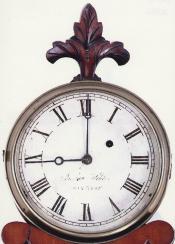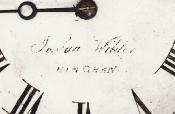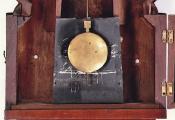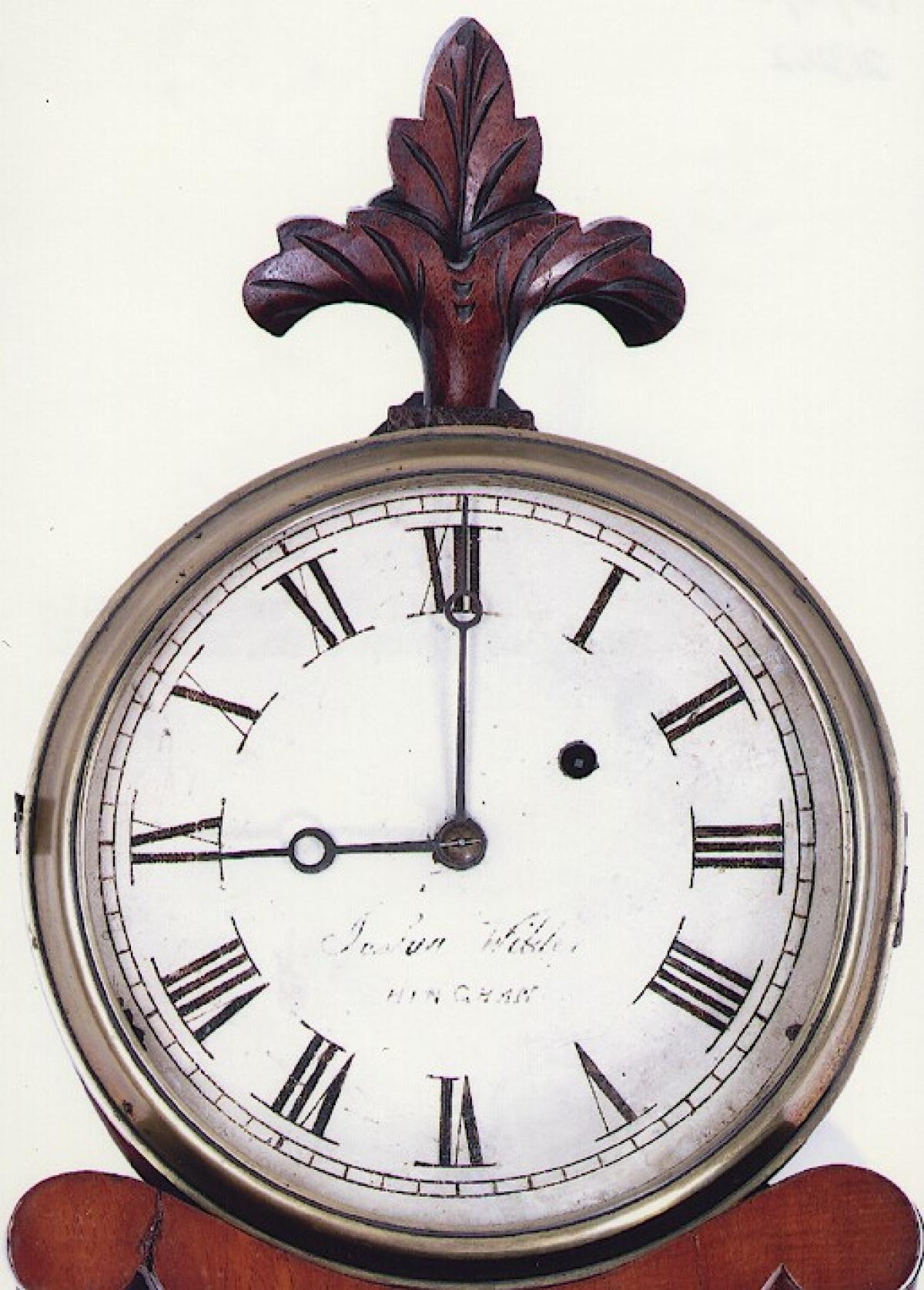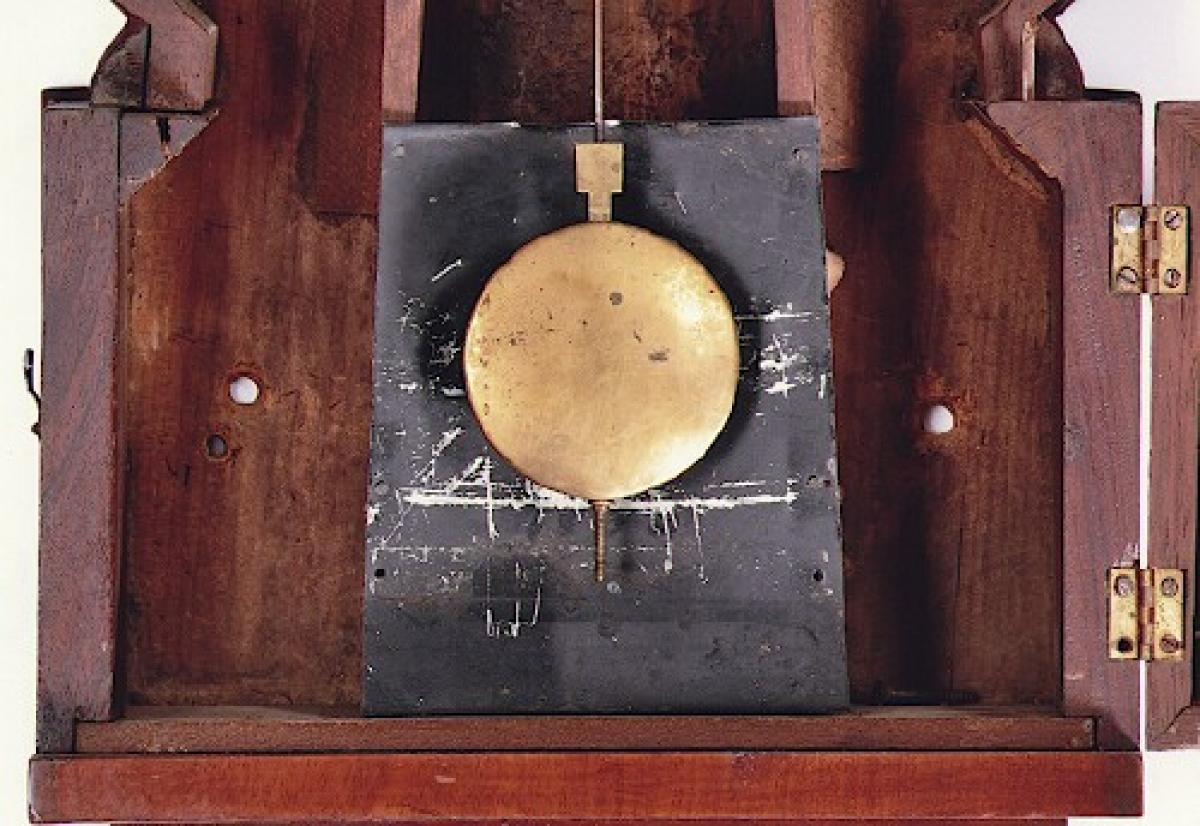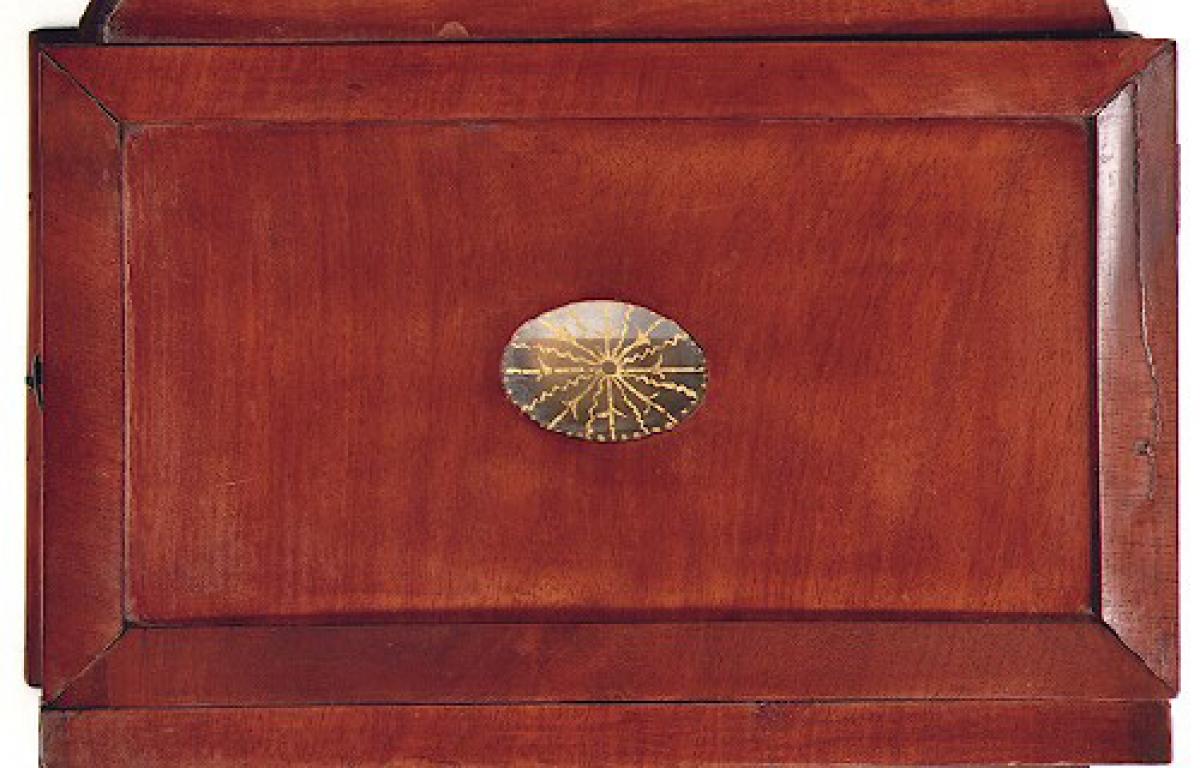Joshua Wilder Lyre Timepiece. Hingham, Massachusetts. Lyre clock. 213162.
This is a fine example of a mahogany-cased lyre form wall clock or timepiece made circa 1830. The form is first-rate and exhibits long narrow proportions. The case is constructed in mahogany, and New England white pine is used as a secondary wood. The mahogany retains an older refinish. It is stable and consistent.
The top of the case is fitted with a carved wooden floral finial. The finial is mounted on top of a plinth that is secured to the head of the case. The cast brass bezel is fitted with glass. This protects the dial and opens it to access the hands and winding square. This dial is signed by the Clockmaker in large script lettering within the time track. The hours are indicated in Roman-style numerals. The hands are steel and simply formed. The throat frame is unusual. The vast majority of lyre clocks feature elaborately carved throat frames. This example does not. This frame features a conservative flat molding. It is from the shape of this frame that this clock form gets its name. Notice the similarity to that of a musical harp or lyre instrument. The lower door is constructed with canted frames. The mahogany panel has a small oval cut-out that is fitted with glass. A simple gilt paint decoration is applied to this glass oval. The pendulum bob swings behind this, making its motion visible to the observer. This lower door allows one access to the case's interior, where the brass-faced pendulum bob is located. Below this box is mounted a mahogany plinth or bracket, which terminates with an acorn drop finial.
The eight-day weight-driven movement is brass. Wilder mounted it to the backboard with a single screw from the back of the case to the center of the back plate. This movement is of good quality and runs well.
This clock measures approximately 41 inches long, 11 inches wide, and 4 inches deep.
Inventory number 213162.
Joshua Wilder was born in Hingham, Massachusetts, on December 2, 1786. He was trained in the art of clockmaking by John Bailey Jr. of Hanover, MA. Wilder completed this apprenticeship sometime around 1807. It appears he stayed in Hanover briefly before moving back to Hingham to establish his home and business on Main Street in the South Parish. Wilder was the first clockmaker to settle in this prosperous town. He found a ready market for tall case clocks, dwarf clocks, wall timepieces, the Massachusetts shelf form, and mirror clocks. Wilder becomes one of America’s most prolific Makers of the dwarf clock form.
Joshua Wilder was active in the local religious Society of Friends. He became known locally as the “Old Quaker Joshua Wilder.” He was also involved with the Temperance Society and Peace Society of Hingham. Wilder’s business eventually evolves into a retailer of common goods. Wilder is said to have trained several Clockmakers, including his son Ezra Wilder, Reuben Tower, Allen Kelley, and Phillip Bennet. About 1840, it is said that his son Ezra joined him in business. Joshua died on October 4, 1860, in the town of Scituate.
A fair number of clocks made by this maker have been found. Many of these are the dwarf form but also include tall case clocks, timepieces, shelf clocks, and mirror clocks in much smaller numbers. Currently, the Hingham Library is displaying a tall case clock he made.


